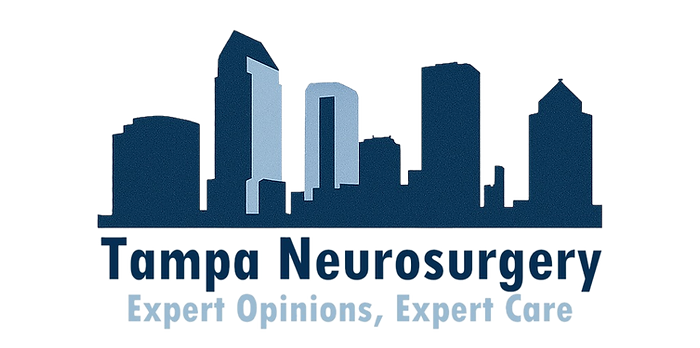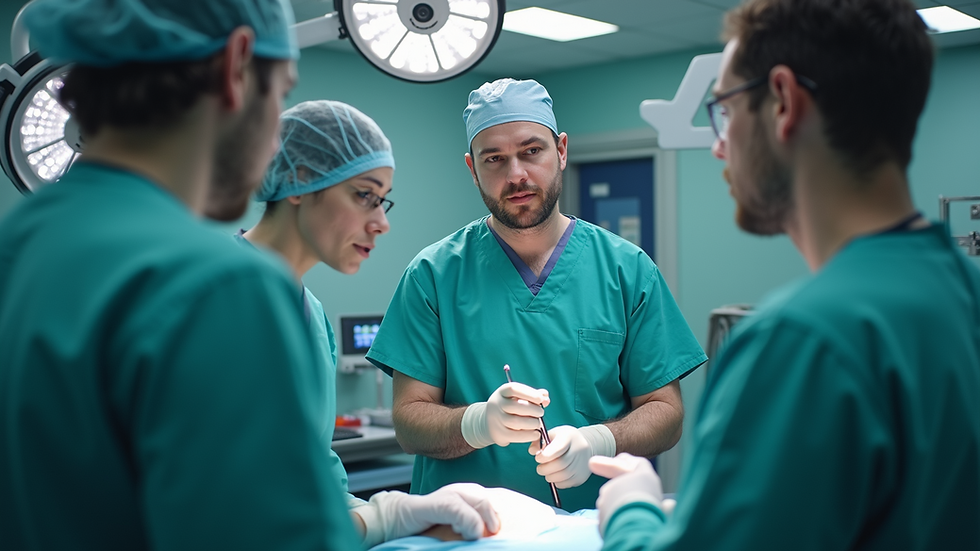Specialized Neurosurgery Care in Tampa, Florida
- claytonbauer7
- Aug 6
- 5 min read
When it comes to health, few things are as critical as the care we receive for our brains and nervous systems. Neurosurgery is a specialized field that focuses on treating conditions affecting the brain, spine, and nerves. In Tampa, Florida, patients have access to some of the best neurosurgical care available. This blog post will explore the specialized neurosurgery services in Tampa, the conditions treated, and what patients can expect from their care.
Understanding Neurosurgery
Neurosurgery is a branch of medicine that deals with the diagnosis and treatment of disorders affecting the nervous system. This includes the brain, spinal cord, and peripheral nerves. Neurosurgeons are highly trained specialists who perform surgeries to treat various conditions, such as tumors, injuries, and degenerative diseases.
Common Conditions Treated by Neurosurgeons
Neurosurgeons in Tampa treat a wide range of conditions. Some of the most common include:
Brain Tumors: Both benign and malignant tumors can affect brain function. Neurosurgeons work to remove these tumors while preserving healthy brain tissue.
Spinal Disorders: Conditions like herniated discs, spinal stenosis, and degenerative disc disease can cause significant pain and mobility issues. Surgery may be necessary to relieve pressure on the spinal cord or nerves.
Traumatic Brain Injuries: Accidents can lead to serious injuries that require immediate surgical intervention. Neurosurgeons are trained to handle these emergencies.
Epilepsy: For patients with epilepsy that does not respond to medication, surgery may be an option to remove the area of the brain causing seizures.
Aneurysms: Aneurysms are bulges in blood vessels that can lead to life-threatening situations. Neurosurgeons can perform procedures to repair these vessels.
The Importance of Specialized Care
Choosing a specialized neurosurgeon is crucial for effective treatment. Specialized care means that the surgeon has extensive training and experience in handling complex cases. In Tampa, many neurosurgeons are affiliated with leading hospitals and medical centers, ensuring that patients receive top-notch care.
Advanced Technology and Techniques
Neurosurgery has advanced significantly in recent years. Tampa's neurosurgeons utilize cutting-edge technology and techniques to improve patient outcomes. Some of these include:
Minimally Invasive Surgery: This approach reduces recovery time and minimizes scarring. Surgeons use small incisions and advanced imaging techniques to perform procedures.
Robotic Surgery: Some neurosurgeons use robotic systems to enhance precision during surgery. This technology allows for more accurate movements and better outcomes.
Neuro-navigation: This technology helps surgeons visualize the brain and spine in real-time, making it easier to navigate complex areas during surgery.
What to Expect During Your Visit
If you are considering neurosurgery, it is essential to know what to expect during your visit. Here is a general overview of the process:
Initial Consultation: During your first visit, the neurosurgeon will review your medical history and perform a physical examination. They may order imaging tests, such as an MRI or CT scan, to get a clearer picture of your condition.
Diagnosis and Treatment Plan: After reviewing your tests, the surgeon will discuss your diagnosis and recommend a treatment plan. This may include surgery, medication, or other therapies.
Pre-operative Preparation: If surgery is necessary, the surgeon will provide instructions on how to prepare. This may include fasting, stopping certain medications, and arranging for someone to drive you home after the procedure.
Surgery Day: On the day of surgery, you will be taken to the operating room. Anesthesia will be administered, and the surgeon will perform the procedure. The length of surgery varies depending on the complexity of the case.
Recovery: After surgery, you will be monitored in a recovery area. The length of your hospital stay will depend on the type of surgery performed. Your surgeon will provide instructions for post-operative care and follow-up appointments.
Patient Support and Resources
Navigating a neurosurgical journey can be overwhelming. Fortunately, Tampa offers various resources to support patients and their families. Many hospitals have dedicated care teams that provide education and emotional support throughout the process.
Support Groups
Support groups can be invaluable for patients and families dealing with neurosurgical issues. These groups provide a space to share experiences, ask questions, and find comfort in knowing you are not alone. Many hospitals in Tampa offer support groups for specific conditions, such as brain tumors or epilepsy.
Educational Resources
Patients can also benefit from educational resources. Many medical centers provide brochures, videos, and online materials that explain conditions and treatments. Understanding your diagnosis can help you feel more empowered and informed.
The Role of Rehabilitation
After neurosurgery, rehabilitation plays a crucial role in recovery. Depending on the procedure, patients may need physical therapy, occupational therapy, or speech therapy. Rehabilitation helps patients regain strength, mobility, and independence.
Physical Therapy
Physical therapy focuses on improving movement and strength. Therapists work with patients to develop personalized exercise programs that promote recovery and prevent complications.
Occupational Therapy
Occupational therapy helps patients adapt to daily activities after surgery. Therapists teach patients how to perform tasks safely and efficiently, ensuring a smooth transition back to everyday life.
Finding the Right Neurosurgeon in Tampa
Choosing the right neurosurgeon is a critical step in your care journey. Here are some tips to help you find the best specialist for your needs:
Research Credentials: Look for a neurosurgeon who is board-certified and has experience in treating your specific condition.
Read Reviews: Patient reviews can provide insight into a surgeon's skills and bedside manner. Look for feedback on their communication and overall care.
Ask for Referrals: Your primary care physician can recommend trusted neurosurgeons in the Tampa area.
Schedule a Consultation: Meeting with a neurosurgeon can help you gauge their approach and whether you feel comfortable with them.
The Future of Neurosurgery in Tampa
As technology continues to advance, the future of neurosurgery in Tampa looks promising. Ongoing research and innovation are leading to new treatment options and improved patient outcomes. Tampa's medical community is committed to providing the highest level of care, ensuring that patients have access to the latest advancements in neurosurgery.
Community Involvement
Many neurosurgeons in Tampa are involved in community outreach and education. They participate in health fairs, seminars, and workshops to raise awareness about neurological conditions and the importance of early intervention. This commitment to community health helps ensure that residents are informed and empowered to seek care when needed.
A Journey Towards Better Health
Specialized neurosurgery care in Tampa, Florida, offers patients hope and healing. With a focus on advanced technology, personalized treatment plans, and comprehensive support, patients can feel confident in their care. Whether facing a complex condition or seeking preventive measures, Tampa's neurosurgeons are dedicated to helping individuals achieve better health and quality of life.
In this vibrant city, patients can find the specialized care they need to navigate their neurosurgical journey. With the right support and resources, individuals can look forward to a brighter, healthier future.




Comments